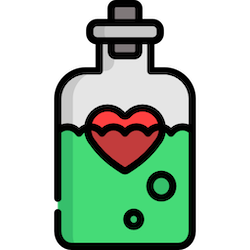You might not know this but gratitude is an amazing therapeutic superpower. We’ve all been told since childhood to “count your blessings” and to be “grateful for what you have” but the science about the benefits of gratitude is compelling. Gratitude can have a positive impact on nearly every aspect of our lives. It can enhance our relationships. It can ward off depression. It can lighten our daily burdens and lead to a sense of inner peace. It reduces harmful social comparison and thwarts hedonic adaption. It can improve our physical health, boost our immunity, and perhaps even increase longevity. It has the power to heal, energize, and change lives.
Gratitude emerges from a recognition that the goodness in our lives is made possible by others. When we experience gratitude, we recognize that we have been the recipient of many gifts — unearned and freely given. The gifts in our lives not only come from those closest to us, like our family and friends, but also strangers who have given their time, talent, and money to make our lives better. Every day we received the gift of food. And the gift of knowledge. We have all been the recipients of someone else’s charity … compassion … and love. While we each have a powerful influence over our life circumstances, the reality is that we have been the benefactor of so many things not of our making.
And gratitude begets more goodness. Those who experience gratitude are more likely to be charitable and kind to others.
Numerous research studies conducted over the past 2 decades have repeatedly shown the power of gratitude. In one study, health care professionals who were asked to keep a weekly gratitude journal had significant reductions in perceived stress and depressive symptoms. In another study, patients who were suicidal and depressed had dramatically lower feelings of hopelessness and increased levels of optimism after writing a gratitude letter. In yet another study, a gratitude exercise led to improved sleep quality. Gratitude is quick, is readily available, has no known side effects, and is cost-effective. It’s free!
You are never too young, too old, too poor, too rich, or too busy to live more gratefully. But it’s effects are fleeting unless you regularly practice gratitude with attention and intention. If your thoughts are constantly filled with worry, irritation and sadness, the neural networks in your brain will be more conducive to anxiety, anger, and depression. Fill your mind with thoughts of appreciation and thanks and the neural networks will be shaped toward gratitude.
Gratitude can transform common days into thanksgiving, turn routine jobs into joy, and change ordinary opportunities into blessings.
-William Arthur Ward
Here are two evidence-based gratitude exercises that you might consider trying:
- Keep a gratitude journal. About an hour before you go to bed, spend 15 minutes writing about 3 good things in your life. Writing them down is important because it forces you to process your thoughts and feelings more deeply. These can be events, experiences, and relationships for which you are grateful. Try to come up with 3 new things each time. This can be everyday or just once a week. The key is to do it at regular intervals. This activity has been shown to improve sleep, reduce anxiety, and enhance a sense of contentment.
- Write a gratitude letter. Think about a person in your life whom you have not properly thanked. It can be a mentor, teacher, coach, sibling, co-worker, or friend. Compose a letter to this person expressing your gratitude. Be specific – clearly state what he/she did (or is currently doing) for you and how it has improved your life. If possible, hand deliver your letter to the recipient. Or if this is not practical, mail it … or call them and read your letter. This activity has been shown to improve a sense of wellbeing and contentment and leads to improved relationships.
In his delightful Little Book of Gratitude, Dr. Richard Emmons states that grateful people experience pronoia — basically the opposite of paranoia, harboring a belief that others are conspiring to improve their lives. Grateful people see the benevolence in the world. They are aware of and share their feelings of appreciation, and in doing so, amplify the good in others.
This episode of the podcast Hidden Brain explores the many benefits of gratitude which not only makes us feel happier but it motivates us to do virtuous acts.
So here is my gratitude journal entry tonight. I’m grateful for:
- My wife, Seena, for the countless things, great and small, she does that make my life richer, happier, and easier.
- The privilege to live in a time and place where I can freely travel, to experience new cultures, and see sights that few humans have seen.
- A good cup of coffee and glass of wine. It took hundreds, perhaps thousands, of people to bring these to me. It was made possible by their incredible knowledge, skill, and labor. Truly amazing!
Sorting Coffee in Honduras
A vineyard somewhere in Tuscany, Italy
Wear gratitude like a cloak and it will feed every corner of your life.
– Rumi (13th century Sufi cleric)
Cheers-
Stuart
Dr. Stuart T. Haines
Professor of Pharmacy Practice
Editor-in-Chief, Wellbeing Elixir
Chief Education Officer (CEO)




